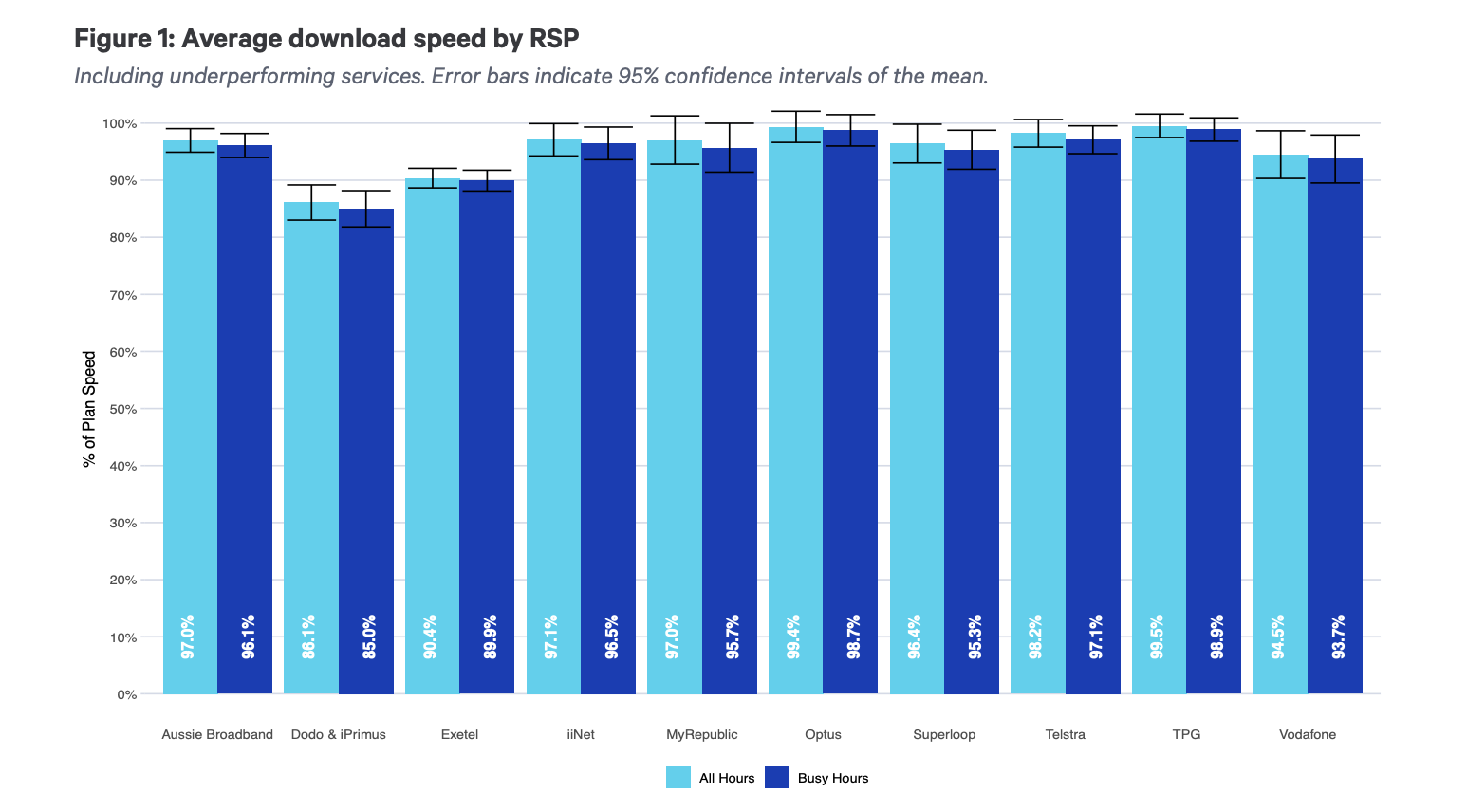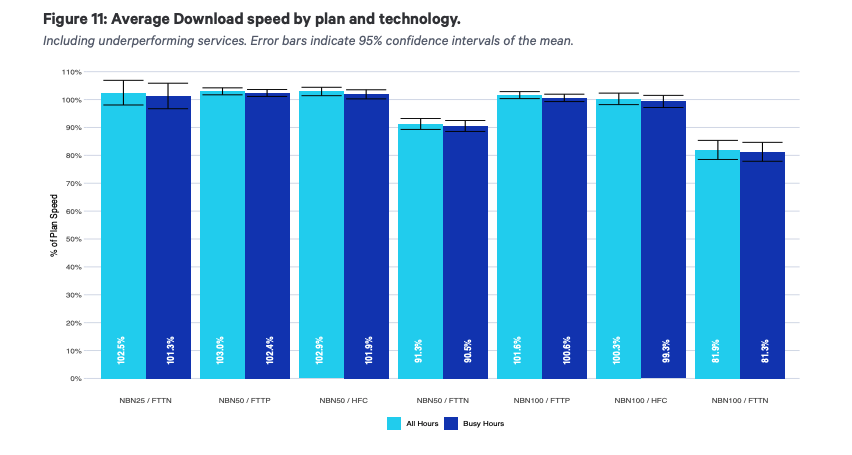The performance of the NBN has continued to improve, with the Australian Competition and Consumer Commission (ACCC) clocking the highest overall broadband speeds across the network since the regulator began tracking its performance in 2018.
That’s according to the ACCC’s latest Measuring Broadband report, which collected its data over the entire month of December, 2020.
It found that despite increased pressure from home working and learning, internet providers reached between 85 and 98.9% of maximum plan speeds across all fixed-line plans in the peak evening hours during the testing period.
These benchmarks are a small improvement over the last record-breaking figures released in the previous report, which collected data in October last year.
- Compare NBN plans: best providers and deals at every speed
Fixed line: who are the winners
The ACCC’s latest results are great news if you have a fixed line connection, though some ISPs are still better than others.
Once again, Optus has the highest average download speed across all hours, reaching 99.4% of its plan speeds throughout the day. TPG marginally edged ahead in the busy evening hours, achieving 98.9% of its plan speeds between 7pm and 11pm, compared to Optus’ 98.7%.

The report found that MyRepublic had a much higher latency compared to its competitors, with an average of 20.5 milliseconds for all hours and 21.5 milliseconds during the peak evening period. A higher latency has an impact on ‘real-time’ activities such as online gaming, video and voice calling.
Telstra was found to be the best provider for webpage loading times, taking 3.9 seconds to load a website no matter the time of day. MyRepublic and Vodafone had the longest webpage loading times at 4.4 seconds each, though the ACCC suggests it may not have a significant visual impact to users.

The ACCC found that fibre-to-the-node (FTTN) is still the worst-performing wired connection – and it’s what the majority of Australians have access to. For users on a FTTN NBN 50 plan, their average download speed was found to be around 6Mbps lower than other connection types, or about 12% lower.
The results are worse for those in a FTTN household on an NBN 100 plan, with an average download speed around 18Mbps lower than other connection types.
- Fastest NBN plans: best 1000Mbps, 250Mbps and 100Mbps plans
Fixed wireless measured for the first time
This report sees the ACCC measure the performance of fixed wireless connections for the first time. Instead of fibre or copper cable running directly to the home, NBN fixed wireless uses radio signals, and is mostly used in regional and remote areas where properties are spread far apart.
The results show how far behind it is in terms of speed – those with a fixed wireless connection were able to receive 78.5% of their maximum plan download speed on average, which dropped down to just 68.4% of plan speed between 7-11pm.
The data shows how much fixed wireless connections are impacted during peak times, with results showing download speeds dipping to 20Mbps below the day’s maximum speed by 8pm, topping 30Mbps for downloads on average around 8pm.
NBN deals: today's best-value plans
- Cheap NBN plans: best internet deals compared
from TechRadar - All the latest technology news https://ift.tt/2O4tOyE
No comments:
Post a Comment